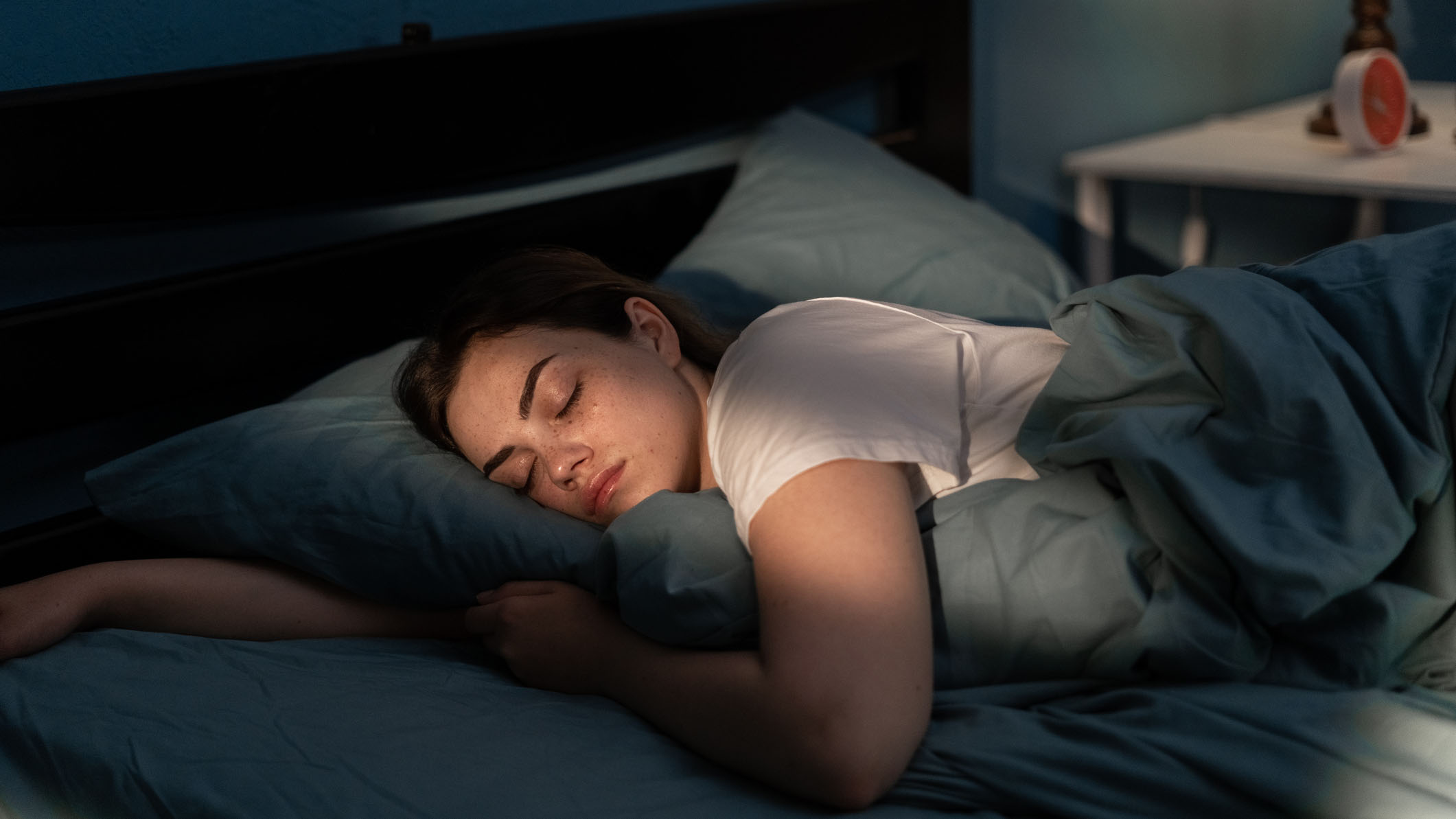
Waking up early during the darker months of autumn/fall and winter is challenging, and feeling upbeat and raring to go upon waking is even harder. However there are some tried and tested tips, products and methods you can use to help you wake up earlier on darker mornings and feel full of energy.
From investing in one of this year's best mattresses for your body and sleep needs to getting natural or simulated sunlight as soon as you're awake, there are plenty of things you can do. And we've shared five of the best hacks right here.
We've also spoken to two leading sleep experts to find out why it's so hard to wake up on darker mornings, and whether you should change your sleep schedule to better suit this time of year.
5 ways to make getting out of bed easier on darker mornings
1. Get exposure to natural (or simulated) sunlight
Sleep expert Dr. Perry says you should “aim for as much natural light as possible during the day as it can improve both sleep quality and morning alertness.” It's especially important to expose yourself to sunlight in the morning. Why? Because this helps regulate your circadian rhythm, making you feel “more awake and prepared for the day.”
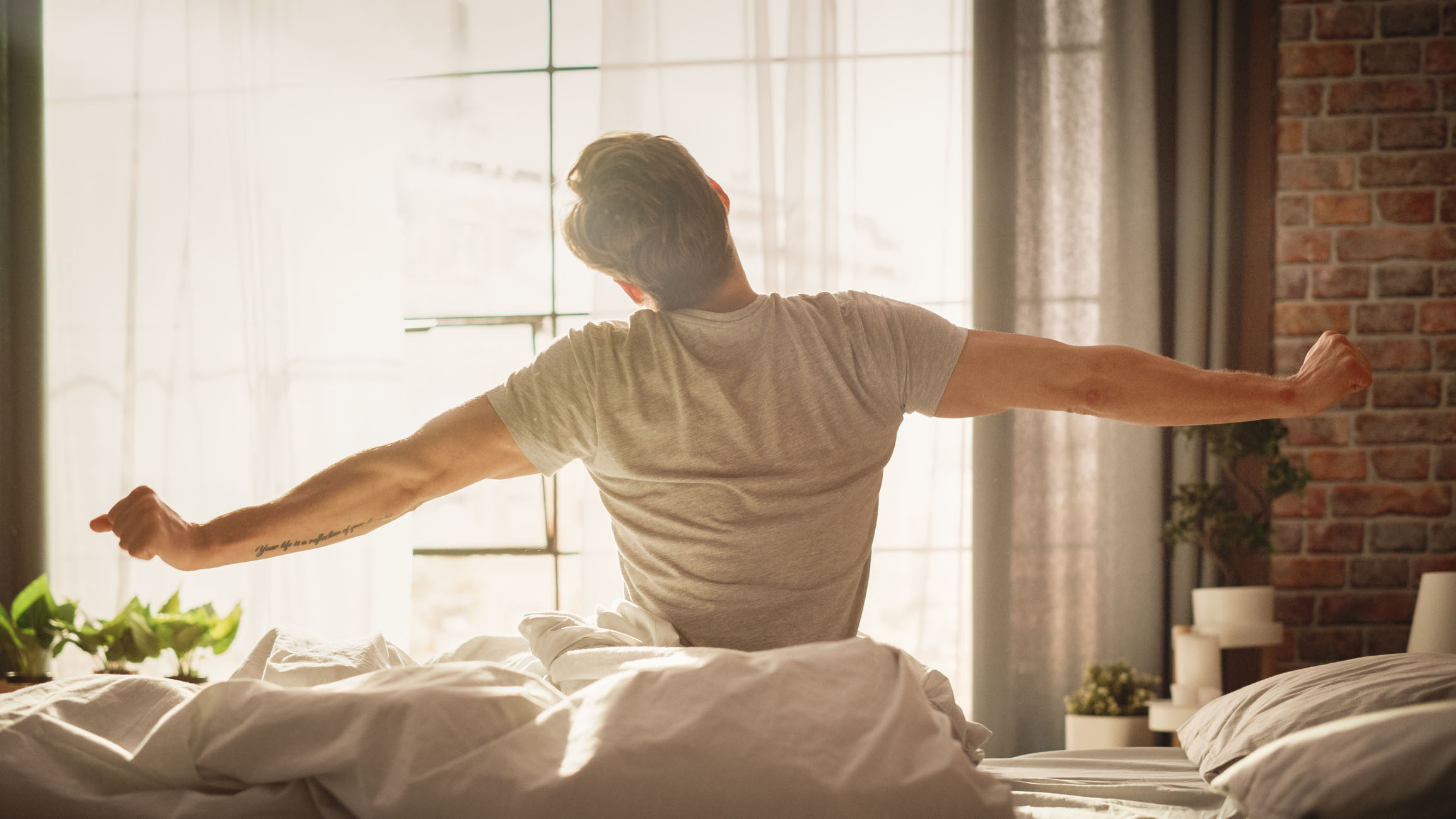
So how can you do this? Get out for an early morning walk in natural light, sit by a window when eating your breakfast, or step outside to drink your morning coffee. If you're an early bird you may struggle to find natural light that early on winter mornings, so it might be worth investing in a sunrise alarm clock to simulate natural daylight, tricking your body into waking up faster.
2. Stick to a consistent sleep routine
Routine really is the best way to achieve good sleep. Maintaining a consistent sleep schedule, where you wake up and go to bed at the same time every day, regardless of whether it's a workday or weekend, helps to regulate your circadian rhythm. This leads to better sleep quality and overall health.
A consistent nighttime routine will also signal to your body that it's time to rest, helping you to transition into a sleepier state much more easily before bed.
3. Take a cold-ish shower first thing
Taking a cold water or lukewarm shower as soon as you wake up helps to get your blood circulating better, so you wake up faster and feel more alert.
Dr. Andrew Huberman, tenured Professor of Neurobiology and Ophthalmology at Stanford University School of Medicine, advocates for deliberate cold exposure on his podcast the Huberman Lab. This refers to a one to three minute cold shower with the aim of increasing adrenaline, alertness and dopamine to get you moving.

Alternatively, drinking a cold glass of water also helps boost your energy and mental performance by rehydrating you fast after a night’s sleep.
4. Supplement with Vitamin D
Vitamin D is created in the body in response to sunlight exposure, and it's vital for boosting energy levels and alleviating fatigue. As sunlight exposure dips in winter months, you might be feeling particularly tired making it harder to get out of bed.
Therefore, it is worth considering supplementing vitamin D with tablets and food – you’ll find it in fish, eggs and mushrooms.
5. Exercise early in the morning
Dragging yourself to the gym or out on a run won't be the first thing you'll want to do on a cold, dark morning, but your body and mind will you for it once you get home. Exercise produces the stress hormone cortisol, which helps you wake up faster and feel more energized sooner.
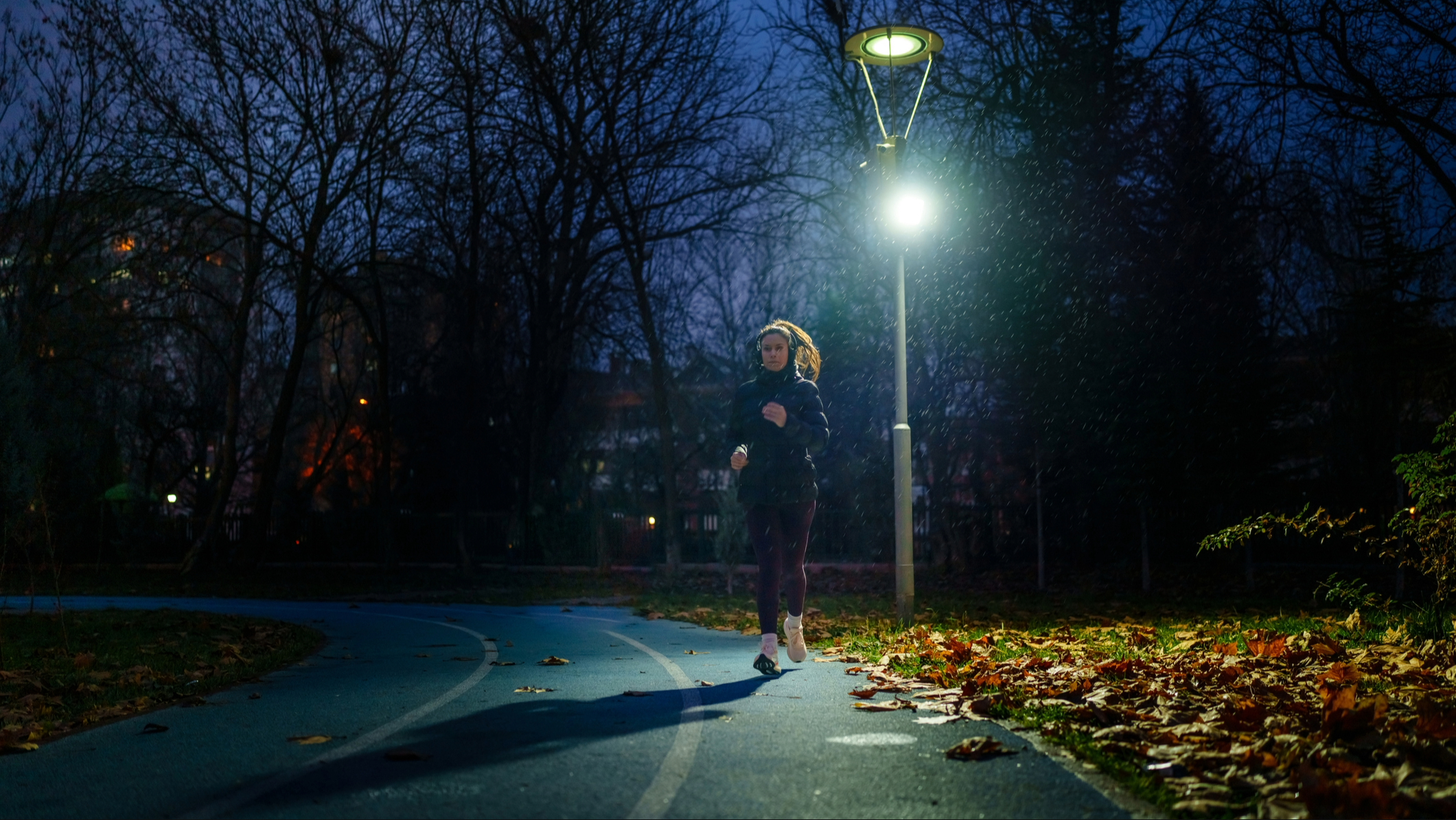
Dr Huberman says the “right time” to elevate cortisol is first thing in the morning as it helps your mental focus and ability to move your body. Morning exercise can also improve mood throughout the day and set you up for a good sleep at night.
Why is it so hard to wake up on dark mornings?
Exposure to natural sunlight affects our circadian rhythm, meaning our sleep-wake cycles shift with the darker mornings and evenings. This can lead to us feeling more fatigued during autumn/fall and winter, when the sun rises later and sets earlier.
Our bodies produce melatonin (the sleepy hormone) in response to darkness. With all the increased hours of darkness we naturally produce more melatonin in winter, which tells our body to sleep. Without natural light signalling our body to wake up, it becomes harder to do so on dark mornings and we generally feel more tired.
Dr. Chelsea Perry, owner of Sleep Solutions and a member of the American Academy of Sleep Medicine, tell us: “It’s difficult to wake up in the dark because our bodies depend on light to suppress melatonin, the hormone responsible for making us feel sleepy. Without natural light, the body remains in nighttime mode, making it harder to get moving."
How much sunlight does the average person need?
Getting ample sunlight during the day can help set you up for a good night’s rest of peaceful and restorative sleep. Determining how much sunlight you need depends on factors such as your skin tone, age and where you live.
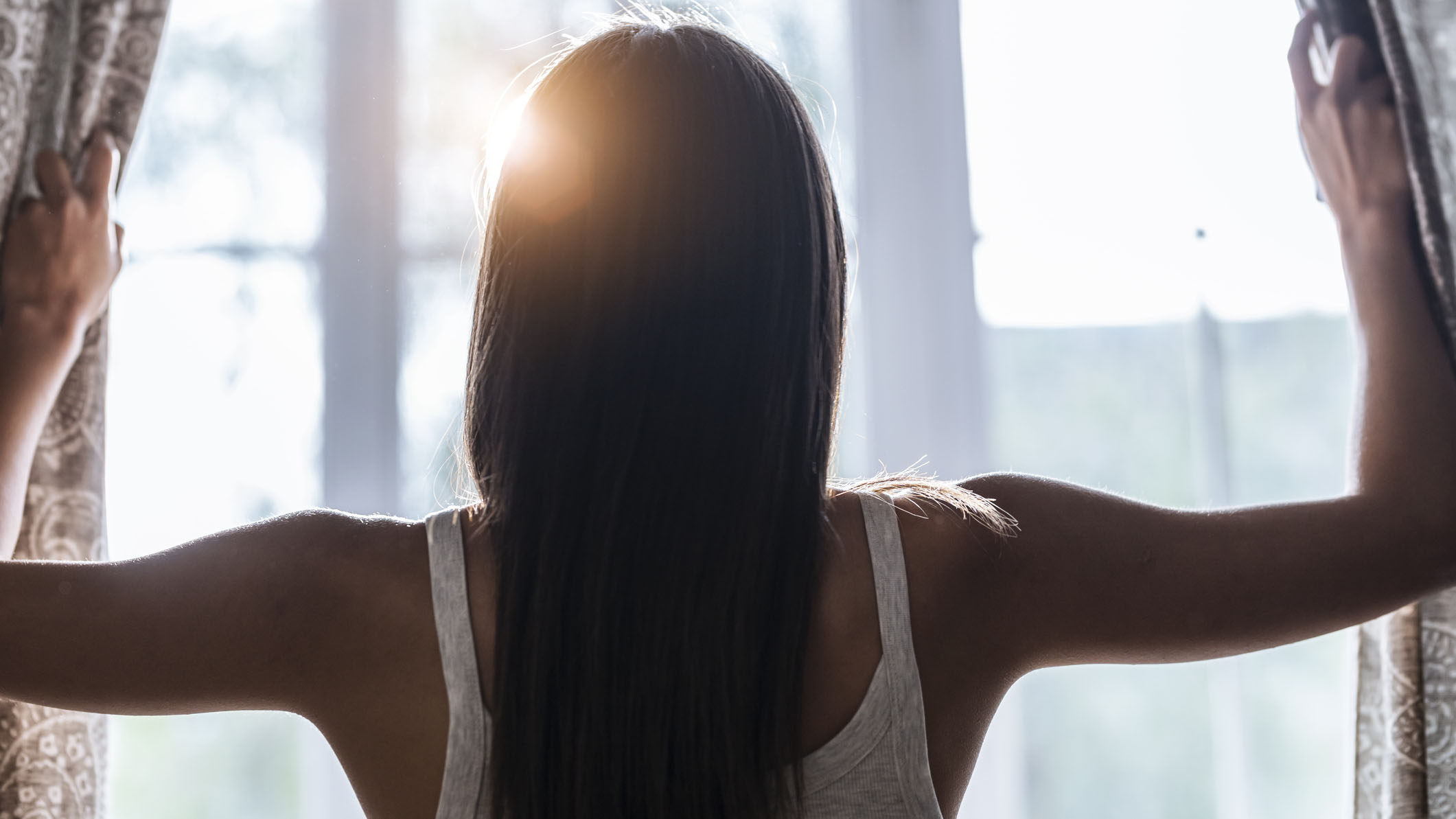
According to research from the National Library of Medicine, adults with light skin should get at least 10 to 30 minutes of midday sunlight. This is the sweet spot that will enable them to produce a healthy amount of vitamin D.
The study also explains that people with darker skin may need more sunlight than this (up to 40 minutes) because darker skin takes longer to convert sunlight to vitamin D. Similarly, those living farther away from the equator will need to spend longer outside because the UV levels are lower.
Why do want to hibernate during the colder months?
The effects of seasonality on sleep cannot be denied. As the bright summery mornings drift away, so does our motivation to spring out of bed. Whether it's a social hangover after the busy summer months of vacations, weddings and festivals or simply a lack of natural sunlight, you're not alone. A survey by the American Academy of Sleep Medicine found 34% of US adults report sleeping more in winter.
Dr. Huberman notes that for your brain and body to feel alert and focussed, or alternatively feel sleepy, it needs cues that tell it to do those different things. He calls these “stimuli” that control when you are awake and when you are asleep. “Light and dark are two very powerful tools to encourage your nervous system to be in one state or another, meaning awake or asleep.”
With reduced light hours in the winter months, it is only natural that we want to sleep more – our external environment is telling our body to prepare for sleep earlier in the evening and to remain sleepy later in the morning.
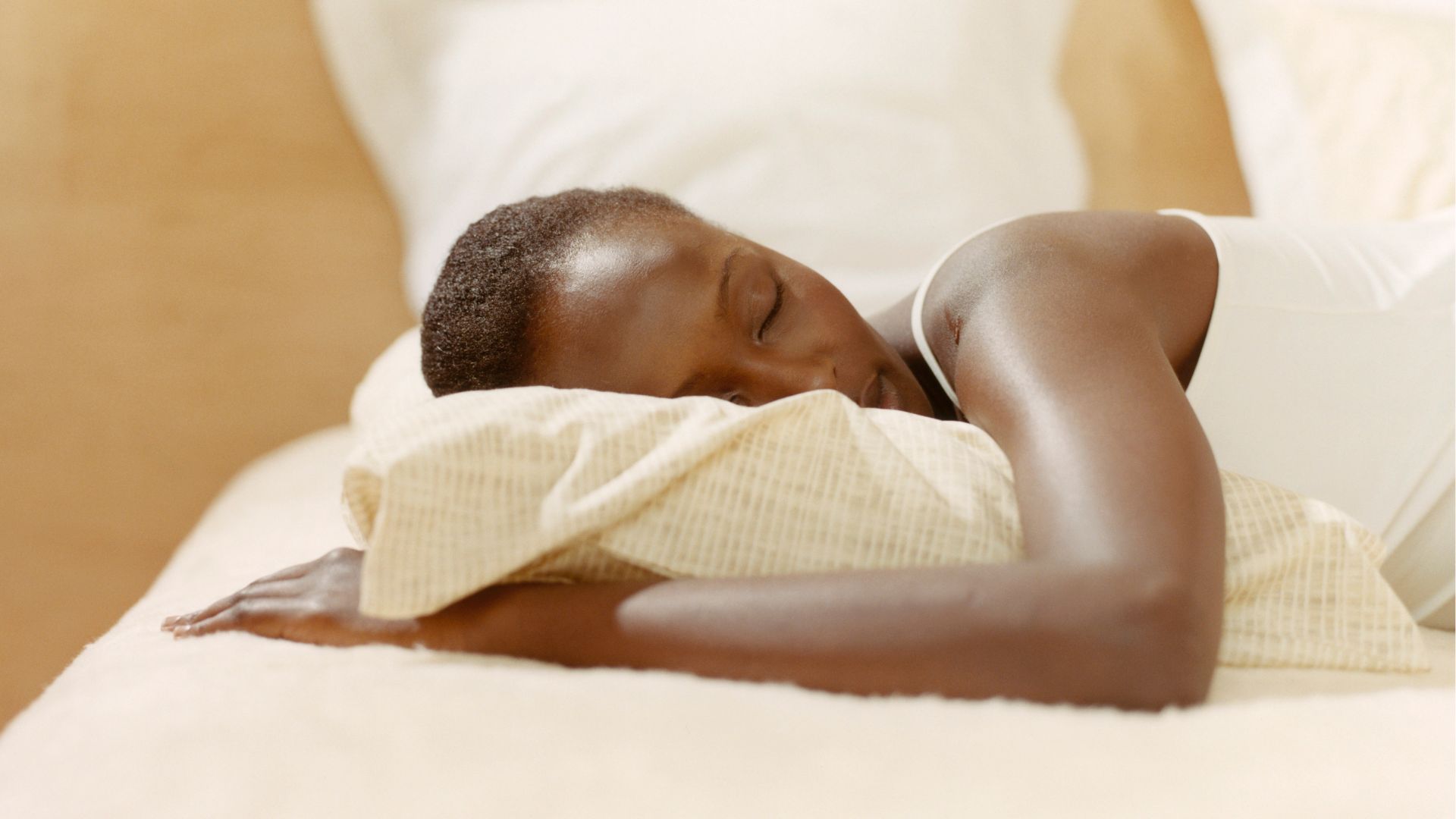
But it is not necessarily a bad thing. It is not only the quantity of sleep people get during the winter that increases, but also the quality. A sleep study carried out at St. Hedwig Hospital in Berlin found participants got 30 more minutes of rapid eye movement (REM) sleep during winter.
While it is not as physically restorative as deep sleep, REM sleep is important for brain development, memory development, mental health and immunity.
Should you change your sleep schedule for fall?
While some experts suggest making slight adjustments to your sleep schedule for fall, making drastic changes is not recommended. Dr. Perry says: “Darker mornings can make waking up more challenging, so shifting your bedtime earlier by 15 to 30 minutes might make it easier to wake up in the morning.”
That extra sleep is sure to help you feel refreshed in the morning, but ultimately a consistent sleep schedule throughout the year will help you get the best quality sleep.
Listening to your circadian rhythm, sleeping when you naturally feel tired and making the most of it when you feel energized will also help you get quality sleep. Whatever method you choose to combat feelings of grogginess on darker mornings, make sure you can sustain it throughout the winter months.







